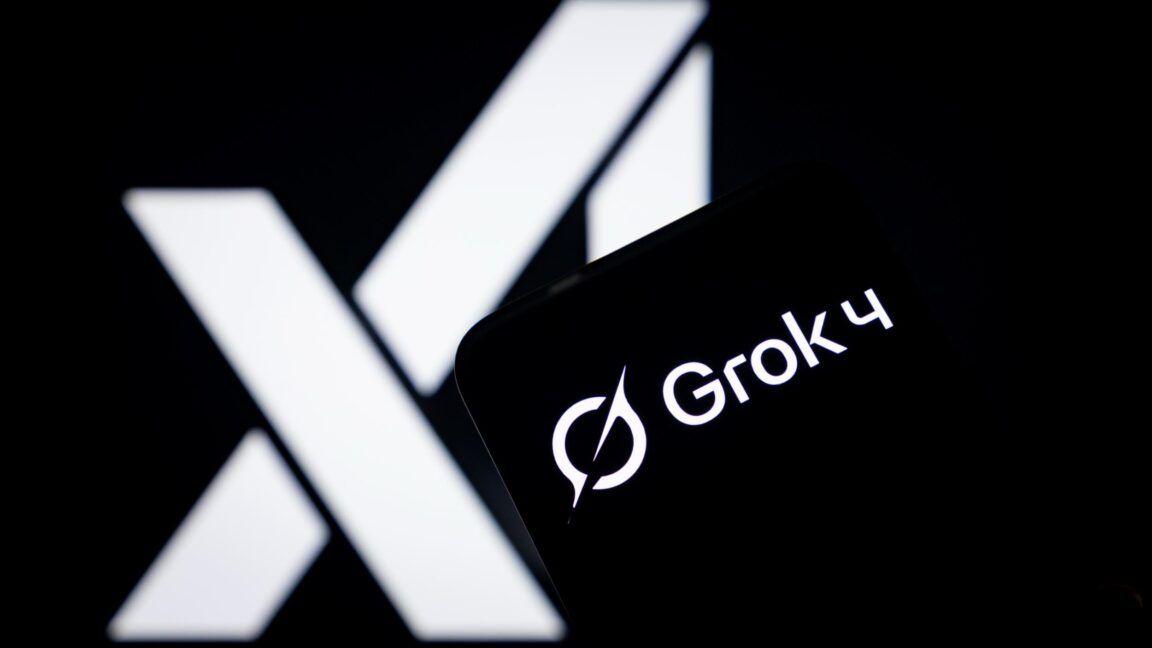UCLA Pioneers AI-Generated Course Materials for Comparative Literature Class
4 Sources
4 Sources
[1]
UCLA's AI-Based Literature Class Ridiculed for Incomprehensible AI-Generated Textbook
UCLA has announced that, starting next year, it will offer a comparative literature course on medieval and Renaissance-era writing that will make heavy use of AI-generated materials. Officially described as "survey of literature from the Middle Ages to the 17th Century," this won't constitute supplemental stuff here and there, but the foundation of the entire class, including an AI-generated textbook, AI-generated assignments, and AI-generated resources for teaching assistants. The reaction from writers and academics has been one of outrage -- but also mockery. That's because the cover for the course's AI-generated textbook is total fucking gobbledygook. Nevermind the pseudo-illuminated-manucript-styled visuals that are all over the place -- the text itself is absolute nonsense. "Of Nerniacular Latin To An Evoolitun On Nance Langusages," reads prominently placed text on the textbook cover. This is an almost too on the nose metaphor for the blatant shortcomings of generative AI. AI models can frequently get the facts wrong -- if they're not just making them up -- a phenomenon that the industry likes to call "hallucinations" but is better described as "bullshitting." They can also distort the original sources they're pulling from by inaccurately reproducing their content. In this case, the AI tool used to create the course materials was Kudu, a platform for creating digital textbooks. Kudu was created by another UCLA professor, which is probably why we're witnessing this forced-sounding plug. According to course professor Zrinka Stahuljak, she created the textbook and assignments by supplying her own course notes from previous versions of the class to the AI tool, which wouldn't pull from any outside sources, ostensibly making its output much more reliable. This is also supposed to discourage students from using other AIs to cheat, somehow. "It will only respond based on course content," Stahuljak said. "So it's there to help our students, but it also reduces the risk of them using ChatGPT to generate their homework assignments." The other big upside, Stahuljak argues, is that using AI saves professors like her a lot of time. "Normally, I would spend lectures contextualizing the material and using visuals to demonstrate the content," Stahuljak said in the statement. "But now all of that is in the textbook we generated, and I can actually work with students to read the primary sources and walk them through what it means to analyze and think critically." So, instead of getting hours of actual instruction from their professor on key background about the primary sources they'll be reading, the students will get a lousy AI summary? And this is supposed to be an upgrade? Not according to Stahuljak's peers. "If you do this you should have your doctorate revoked and be thrown into the stocks at the center of the main university quad," tweeted Dan Walden, a philologist and an assistant professor at The University of Tulsa. "This is abandonment of professional responsibility to a degree that would be comical if it weren't so self-serious."
[2]
A Humanities Course at UCLA Will Use an AI-Generated Textbook
AI has come for a market that was ripe for disruption: heavy and expensive college textbooks. A comparative literature class at the University of California, Los Angeles will be taught with an AI-generated textbook in 2025. This marks the first time the college will use the system for a Humanities course, though it’s already been deployed in an introductory history class on campus in the most recent semester. UCLA announced the forthcoming AI textbook in a blog post. Professor Zrinka Stahuljak is teaching the class, History & Fiction: Survey of Literature from the Middle Ages to the 17th Century, and is bullish on the use of the AI-generated course materials. “It allows us to spend more time teaching basic analytical skills, critical thinking and reading skills, in a consistent mannerâ€"the things professors are best at doing,†she told UCLA. “Those are hard things to do when you have 300 students in a classroom, but this allows us to do them much better.†The company that generated the textbook is called Kudu. As angry as I often am about the proliferation of shitty generative AI in our lives, it’s hard for me to be mad at Kudu. College textbooks and the economy around them have long been a nightmare. For decades, printing presses churned out massive textbooks that cost hundreds of dollars. They’d disrupt the used market by making small changes to a few pages, reprinting everything, and then charging students for a new edition. Worse was the proliferation of expensive “access codes.†A student who saved cash by buying an outdated textbook would get hit by a charge for a one-time use code, sometimes as high as $100, to access online course materials. Kudu is charging students $25 per semester to use the textbook. It’s all accessed online so there’s no weighty book to haul across campus. According to Kudu and the ACLU, the coursework was created in collaboration with the professor. This is a more complicated process than simply feeding everything into an LLM and having it spit out the results. The textbooks are custom-made for each class and take upwards of four months to produce. “To create the new textbook, Stahuljak provided Kudu with course notes from previous iterations of the class, along with PowerPoint presentations and YouTube videos she self-produced for remote teaching during the COVID-19 pandemic,†UCLA said. What pops out on the other end is an interactive system. Once something is generated, Kudu pays the professor to fact check and critique the work. “For the comparative literature course, content was vetted by Stahuljak and Jakob Johnson, a history major who graduated in 2024,†UCLA said. There are many written bits, as well as videos and course assignments. A video on Kudu’s website demoing the tool shows the Vlogging Brothers, Hank and John Green, discussing nuclear science and Roman history. The system also comes with a built-in chatbot, of course, that students can talk to if they have questions. The LLM is only trained on the material and has no access to anything outside of it. “It will only respond based on course content,†Stahuljak told UCLA. “So it’s there to help our students, but it also reduces the risk of them using ChatGPT to generate their homework assignments.†Kudu also claimed it has a system to detect when a student is generating answers using AI systems. Stahuljak said that Kudu will save her and her teaching assistants time and allow them to focus on their students instead of the coursework. “Normally, I would spend lectures contextualizing the material and using visuals to demonstrate the content. But now all of that is in the textbook we generated, and I can actually work with students to read the primary sources and walk them through what it means to analyze and think critically,†she said.
[3]
UCLA offers comp lit course developed by AI | TechCrunch
In winter 2025, a comparative literature class at UCLA will feature a textbook, homework assignments, and TA resources generated by AI. The class in question is a survey of literature from the Middle Ages to the 17th century, while the materials are generated by Kudu -- an "evolved" textbook platform founded by Alexander Kusenko, a professor of physics and astronomy at UCLA. The university says this will be the first class in its humanities division with materials developed by Kudu. To create those materials, Professor Zrinka Stahuljak provided Kudu with notes, PowerPoint presentations, and YouTube videos from her previous versions of the class. The course creation process can take three to four months, but UCLA says the time commitment for professors should be limited to 20 hours (and Kudu compensates them for their time). Stahuljak said that this approach should free up time for her and her TAs to work more closely with students and also ensure more consistent delivery of course materials. Students can also ask Kudu questions about the material, with its answers drawn only from the material the professor provides, rather than the internet at large.
[4]
AI's next job? Making assignments for college courses
UCLA professors are using an AI-powered tool called Kudu to create textbooks, assignments and more. There are moments with AI that feel like we're passing a threshold there's no coming back from. The latest example is happening at UCLA, where a professor is having AI create the textbook, assignments and teaching assistant resources for her class, Survey of Literature: Middle Ages to 17th Century. Professor Zrinka Stahuljak is using an AI tool called Kudu, created by UCLA professor of physics and astronomy Alexander Kusenko and a former doctoral student Warren Essey. They bill Kudu as a "high-quality, low-cost" way for students to access all the information they need, while professors focus on teaching. Kudu pulls from PowerPoint presentations, YouTube videos, course notes and other materials Professor Stahuljak provides it. According to UCLA, it shouldn't take up more than 20 hours of a professor's time and they can edit the materials afterward. The resulting textbook is available digitally for $25 and can be printed or used with audio readers. Kudu also uses the provided materials to respond to anonymous queries from students. Plus, it can identify whether over half of a student's content is AI-generated. "Normally, I would spend lectures contextualizing the material and using visuals to demonstrate the content. But now all of that is in the textbook we generated, and I can actually work with students to read the primary sources and walk them through what it means to analyze and think critically," said Stahuljak in a statement. "It allows us to spend more time teaching basic analytical skills, critical thinking and reading skills, in a consistent manner -- the things professors are best at doing." She plans to use Kudu for other courses in the future. The AI-powered tool is already being tested this semester in an introduction to history class and will be available for Stahuljak's course in 2025. We'll have to see how successful this will be and, critically, if AI will remain a tool for teachers or be a "low-cost" way to replace them.
Share
Share
Copy Link
UCLA announces the use of AI-generated textbooks and course materials for a comparative literature class, sparking debate on the role of AI in education and its potential impact on teaching methods.

UCLA Introduces AI-Generated Course Materials
The University of California, Los Angeles (UCLA) has announced a groundbreaking initiative set to launch in 2025: a comparative literature course that will heavily rely on AI-generated materials
1
. This innovative approach, spearheaded by Professor Zrinka Stahuljak, marks a significant shift in how educational content is created and delivered in higher education.The AI-Powered Course Structure
The course, titled "History & Fiction: Survey of Literature from the Middle Ages to the 17th Century," will feature an AI-generated textbook, assignments, and resources for teaching assistants
2
. This comprehensive integration of AI in course development is a first for UCLA's Humanities division.Kudu: The AI Platform Behind the Innovation
The AI tool powering this initiative is Kudu, a platform developed by UCLA professor Alexander Kusenko and former doctoral student Warren Essey
3
. Kudu creates custom digital textbooks by processing course notes, PowerPoint presentations, and other materials provided by the instructor. The platform aims to offer high-quality, low-cost educational resources to students4
.The Development Process
Creating the AI-generated course materials is a collaborative effort between the professor and the AI system:
- Professor Stahuljak provided Kudu with her course notes, presentations, and self-produced videos from previous iterations of the class
2
. - The AI processes this information to generate the textbook and other materials.
- The content undergoes a rigorous vetting process, with Professor Stahuljak and a history graduate reviewing and fact-checking the output
2
. - The entire process takes 3-4 months, with an estimated 20-hour time commitment from the professor
3
.
Potential Benefits and Features
Proponents of this approach highlight several advantages:
- Cost-effectiveness: The digital textbook is priced at $25 per semester, significantly lower than traditional textbooks
2
. - Time-saving for instructors: Professors can focus more on teaching critical thinking skills rather than contextualizing material
1
. - Consistency in course delivery: The AI-generated materials ensure uniform content across large classes
1
. - Interactive learning: The system includes a chatbot for student queries, drawing only from the course content
2
. - Plagiarism prevention: Kudu claims to have a system to detect AI-generated student submissions
2
.
Related Stories
Criticisms and Concerns
The announcement has sparked debate within academic circles:
- Quality concerns: The AI-generated textbook cover displayed nonsensical text, raising questions about content reliability
1
. - Pedagogical impact: Some argue that replacing professor-led contextualization with AI summaries may diminish the learning experience
1
. - Professional responsibility: Critics suggest this approach might constitute an abandonment of academic duties
1
. - Long-term implications: There are concerns about the potential for AI to replace, rather than augment, human educators
4
.
Future Implications
As UCLA prepares to implement this AI-driven course, the academic community watches closely. The success or failure of this initiative could significantly influence the future of AI integration in higher education, potentially reshaping how courses are developed and delivered across disciplines.
References
Summarized by
Navi
[3]
Related Stories
Professors develop custom AI teaching assistants to reshape how universities approach generative AI
18 Jan 2026•Technology

The Impact of AI on Higher Education: Challenges and Opportunities in the ChatGPT Era
27 May 2025•Technology

Student Demands Tuition Refund After Catching Professor Using ChatGPT
15 May 2025•Technology

Recent Highlights
1
SpaceX acquires xAI in $1.25 trillion merger, plans 1 million satellite data centers in orbit
Business and Economy

2
EU launches formal investigation into Grok over sexualized deepfakes and child abuse material
Policy and Regulation

3
SpaceX files to launch 1 million satellites as orbital data centers for AI computing power
Technology





